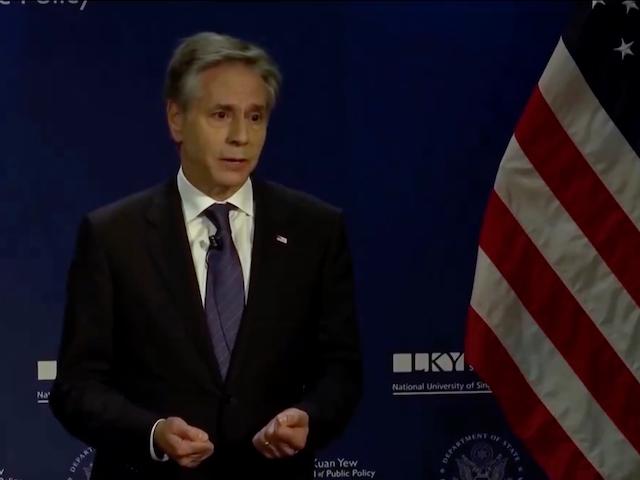United States Secretary of State Antony Blinken has alerted G7 allies to the imminent threat of an Iranian attack on Israel, which could unfold within the next 24 to 48 hours. This alarming revelation, reported by Axios, has set off a flurry of diplomatic and military activity aimed at averting a catastrophic escalation in the Middle East.
Blinken's Warning and Diplomatic Maneuvers
During a critical call with his G7 counterparts, Blinken emphasized the gravity of the situation, urging immediate pressure on Iran and Hezbollah to curb their retaliatory instincts. “This is our best chance to prevent an all-out war,” Blinken reportedly stated, highlighting the unprecedented nature of the looming threat compared to previous incidents, such as the April 13 attack on Israel.
The US Secretary of State, Anthony Blinken, told the G7 members during a conference call tonight, that Iran could launch an attack against Israel in the next 24-48 hours.
— Brian BJ (@iamBrianBJ) August 5, 2024
So no marches against iran in the streets?
No un emergency meeting condemning iran?
Double standards…
In a joint statement, the G7 nations expressed profound concern over the escalating tensions, which they warned could ignite a broader regional conflict. “We urge all involved parties to refrain from perpetuating the current destructive cycle of retaliatory violence, to lower tensions, and engage constructively towards de-escalation. No country or nation stands to gain from further escalation in the Middle East,” the statement read.
US Military Preparations and Regional Responses
Adding to the sense of urgency, General Michael Kurilla, commander of CENTCOM, has arrived in Israel for high-level meetings with security leaders. His mission: to fortify the coalition that will defend Israel in the event of an Iranian attack.
🚨🚨Scoop: Blinken told G7 Iran and Hezbollah could attack Israel in next 24 hours. My story on @axioshttps://t.co/WqdzHYQEg8
— Barak Ravid (@BarakRavid) August 5, 2024
The United States has also issued a stark warning to its citizens to leave Lebanon immediately, underscoring the seriousness of the situation. Deputy National Security Advisor Jonathan Finer, in an interview with CBS, confirmed the deployment of additional US military assets to the region for defensive and deterrent purposes. Finer also underscored the urgent need for a prisoner exchange and a ceasefire in Gaza, although no deal has yet been reached.
This heightened state of alert has prompted numerous countries, including the UK, Australia, Sweden, France, Italy, Canada, South Korea, Saudi Arabia, and Jordan, to advise their citizens to evacuate Lebanon immediately. The UK has gone a step further, dispatching a team of military personnel, consular staff, and border control officers to Beirut to expedite the evacuation of British nationals. Additionally, two Royal Navy warships are patrolling the eastern Mediterranean, and the Royal Air Force has transport helicopters on standby.
Regional Diplomatic Efforts and Israeli Military Readiness
The region is bracing for potential retaliation following two critical incidents last week: the assassination of Ismail Haniyeh, Hamas’s top political leader, and an Israeli airstrike that killed a senior Hezbollah commander and five others in Lebanon. Although Israel has not commented on Haniyeh’s death, the ramifications are rippling through the region.
It's amazing how Biden and Blinken have turned the United States into bystanding commentators on the world stage, as if they have no other option than to kick back and watch Iran attack https://t.co/EuWdPEAzek
— Noah Pollak (@NoahPollak) August 5, 2024
In a rare diplomatic move, Jordan’s Foreign Minister Ayman Safadi visited Tehran, delivering a stern message from King Abdullah II about the “dangerous escalation” in the region. Safadi’s talks with Iranian President Masoud Pezeshkian underscored the severity of the situation, with Pezeshkian declaring that Haniyeh’s assassination was a “big mistake” that “will not go unanswered.”
Amid these developments, Israeli Prime Minister Benjamin Netanyahu convened a meeting of his security cabinet to strategize responses to any potential counterstrikes. In a resolute statement, Netanyahu asserted, “Israel is determined to stand against Iran and its proxies on every front and in every arena — near and far.”
Casualties and Humanitarian Concerns
Tragically, the violence has already claimed numerous lives. At least 30 Palestinians were killed on Sunday in strikes on two schools in Gaza City, where thousands of displaced people had sought refuge. The Israel Defense Forces (IDF) stated that the strikes targeted Hamas militants who were using the schools as “command and control centers.”
Biden: Iran will never have a nuclear weapon
— Jewish Zionist (i will followback) (@SpoiltheG5) August 4, 2024
4 years later
Blinken: 1-2 weeks away for enough fissile material for a nuclear weapon pic.twitter.com/Y3YvBmo1u5
Conclusion
As the world watches with bated breath, the next 24 to 48 hours could be pivotal in determining the course of events in the Middle East. The international community is on high alert, with diplomatic efforts and military preparations intensifying to prevent a full-scale war. The stakes could not be higher, and the call for de-escalation and constructive engagement has never been more urgent.


